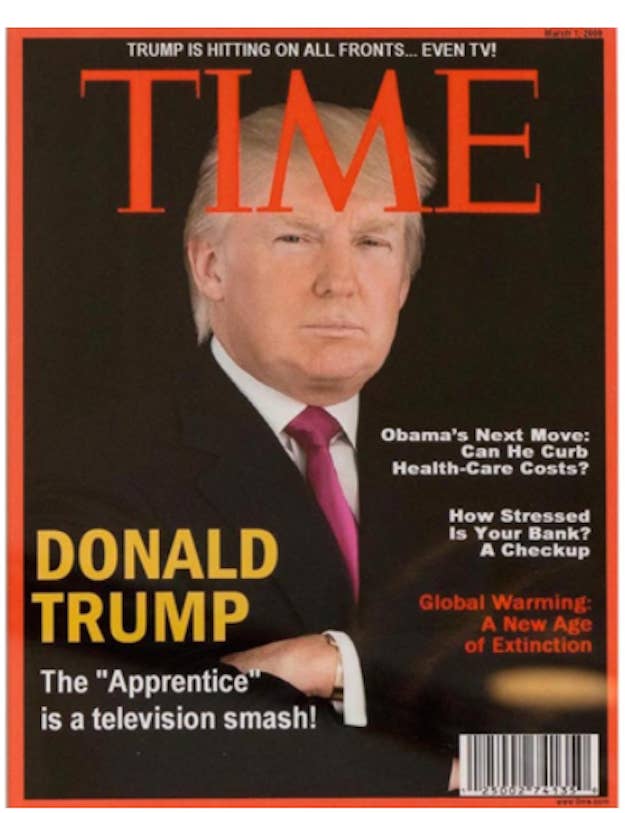This is making me laugh. Trump has fake covers of Time magazine with none other than Donald Trump himself hanging in some of his golf clubs. Fake ones. Fake.
The framed copy of Time Magazine was hung up in at least five of President Trump’s clubs, from South Florida to Scotland. Filling the entire cover was a photo of Donald Trump.
“Donald Trump: The ‘Apprentice’ is a television smash!” the big headline said. Above the Time nameplate, there was another headline in all caps: “TRUMP IS HITTING ON ALL FRONTS . . . EVEN TV!”
This cover — dated March 1, 2009 — looks like an impressive memento from Trump’s pre-presidential career. To club members eating lunch, or golfers waiting for a pro-shop purchase, it seemed to be a signal that Trump had always been a man who mattered. Even when he was just a reality-TV star, Trump was the kind of star who got a cover story in Time.
Except he wasn’t.

Look at that handsome important successful steely-eyed man of steel. Not a trace of fish-mouth, the absurd hair-sculpture obscured by the word TIME, the arms folded in Power Mode – at a quick glance he looks every bit as important and businessy as your average manager of an insurance office in Tulsa. Every bit. He’s an ornament to the cover of Time. Only it’s fake.
Fake.
The Time cover is a fake.
There was no March 1, 2009, issue of Time Magazine. And there was no issue at all in 2009 that had Trump on the cover.
In fact, the cover on display at Trump’s clubs, observed recently by a reporter visiting one of the properties, contains several small but telling mistakes. Its red border is skinnier than that of a genuine Time cover, and, unlike the real thing, there is no thin white border next to the red. The Trump cover’s secondary headlines are stacked on the right side — on a real Time cover, they would go across the top.
And it has two exclamation points. Time headlines don’t yell.
Hahahaha and where are they? On the flattering headlines about Trump. This is the guy who used to call reporters using a fake name to tell them what that guy Donald Trump had been up to lately.
“I can confirm that this is not a real TIME cover,” Kerri Chyka, a spokeswoman for Time Inc., wrote in an email to The Washington Post.
At 5 p.m. Tuesday, a spokeswoman for Time said that the magazine had asked the Trump Organization to remove the phony cover from the walls where it was on display.
So how did Trump — who spent an entire campaign and much of his presidency accusing the mainstream media of producing “fake news” — wind up decorating his properties with a literal piece of phony journalism?
Oh that’s easy. He’s an unselfconscious liar who simply doesn’t care that he has one law for himself and another for everyone else. Another word for that is “psychopath.”
Trump’s corporation didn’t answer questions on the subject. Sarah Huckabee Sanders said can’t comment.
He is such a dork.



